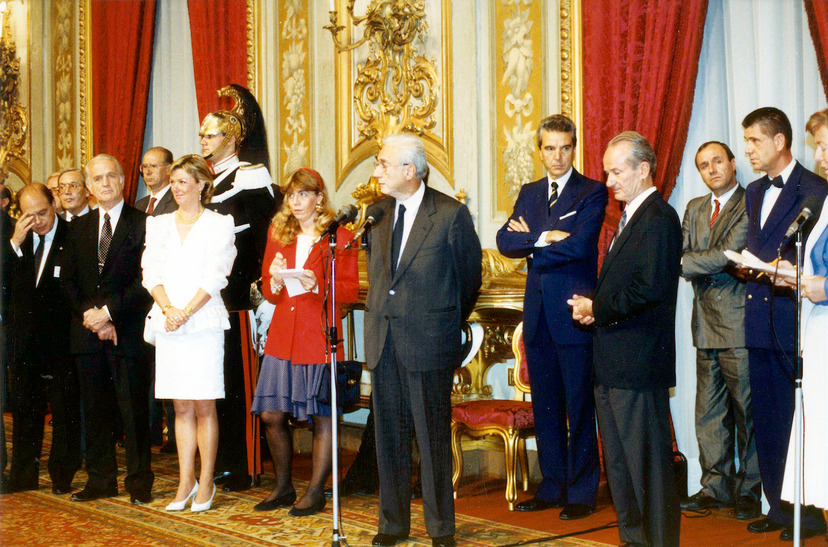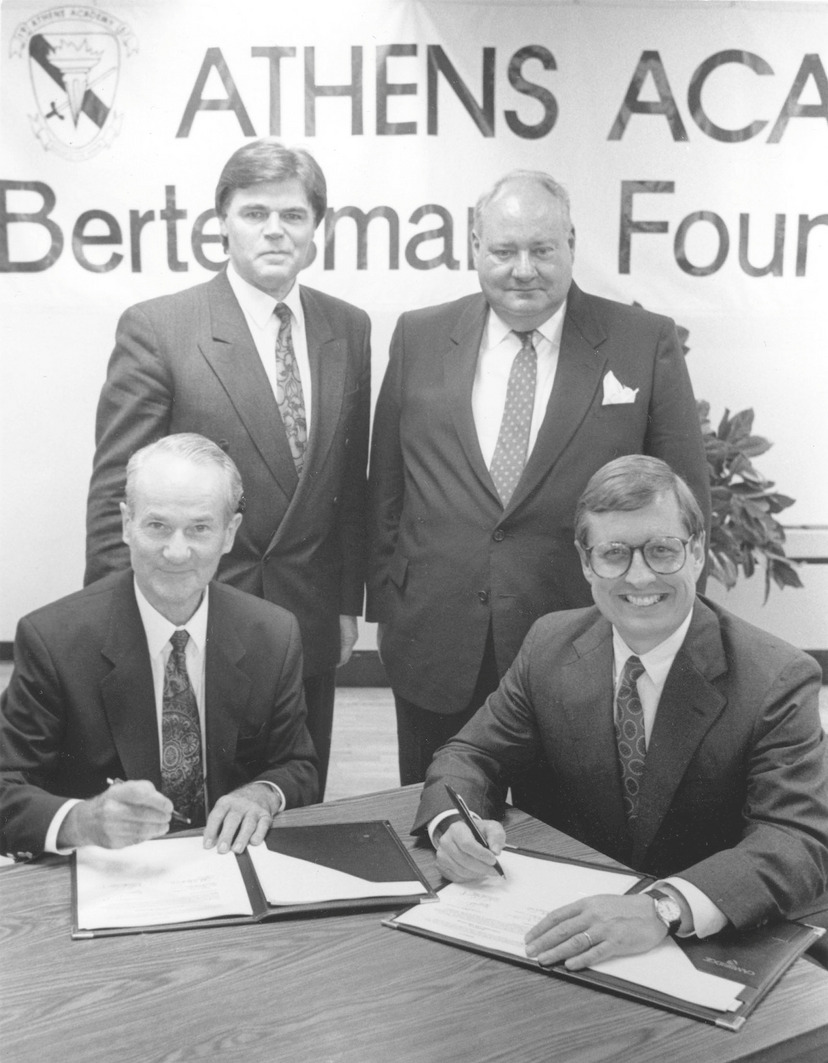Reinhard Mohn becomes chairman of the Bertelsmann Stiftung Advisory Council
After Prof. Kurt Biedenkopf retires as chairman of the Advisory Council, founder Reinhard Mohn takes that position.
1990 Carl Bertelsmann Prize – Evolution in Higher Education
The choice of topic for the 1990 Carl Bertelsmann Prize is meant to bring new momentum to higher-educational reform in Germany. The recognition of exemplary initiatives pinpoints opportunities to develop effective, progressive policies and work at the post-secondary level. In particular, western universities exhibit growing quantitative dimensions in that regard. The increasing differentiation, complexity and interdisciplinary nature of the academic content to be taught and the requisite branches of knowledge place new and special demands on the higher education system.
These apply equally to the relationship among the state, society and the university, to the university as an institution and to the constitution and leadership of universities.
Based on extensive research, the 1990 Carl Bertelsmann Prize is awarded to the University of Warwick in Coventry, UK, in recognition of its exemplary implementation of fundamental educational principles at the university level. Also awarded the prize are Professor Arnfinn Graue and Magne Lerheim, both from the University of Bergen in Norway, for their exceptional efforts in shaping effective higher-education environments and policies.
Conference in Rome: "Europe's Future – A Continent's Culture and Constitution"
Content

Bertelsmann Stiftung
Conference on "Europe's Future – A Continent's Culture and Constitution" on October 17, 1990. Reception at the Quirinal Palace in Rome. Group photo with Liz and Reinhard Mohn and President Francesco Cossiga of Italy.
The conference's "European Constitution" working group drafts a proposal for Europe's future that includes normative and practical criteria for creating a constitution. Just before the European summit, more than 150 representatives from politics, business, academia and the media engage in discussions moderated by Prof. Werner Weidenfeld to consider the European Community's future prospects. Senate President Giovanni Spadolini, Prime Minister Giulio Andreotti and Foreign Minister Gianni De Michelis – the foremost figures of Italian politics – participate as speakers. Also speaking are the Catalan President Jordi Pujol, former Belgian prime minister Leo Tindemans and Cardinal Paul Poupard, president of the Pontifical Council for Culture. The second major topic for the conference is the future of European culture as the continent's unwritten constitution. Conference participants address the relationship between sociopolitical change and preserving cultural identity, the emergence of a "cultural European market" and the practical requirements for a European cultural policy. The Bertelsmann Stiftung has provided a basis for discussion for this issue as well by the professors Hermann Lübbe, Werner Maihofer and Joseph Rovan.
Media education project at Athens Academy in Georgia, USA

Bertelsmann Stiftung
Signing the agreement with the Athens Academy on Oct. 11, 1990: Reinhard Mohn (left), Dr. Hans-Dieter Weger, John J. Wilkins and J. Robert Chambers, Jr. In order to promote media education in an international context, a second pilot project is initiated in cooperation with the Athens Academy in Athens, Georgia, USA.
Within the setting of an American school, the project tests effective use of media in the classroom in order to help students develop the skills required for the information age. The schedule for the six-year project is divided into several phases. In phases 1 and 2, the concepts for the areas of promoting literacy, media didactics, media analysis and media education are developed. In addition, the project is integrated into the school's existing goals and faculty members attend continuing education seminars at the school and elsewhere to prepare for their new duties. As a result, a computer training room is set up in the middle school and a "smart classroom" is created in the upper school, with technology offering a wide variety of possibilities for trying out media-supported instruction. These spaces supplement the functions of a media library to be built starting in the summer of 1992. The centerpiece of this Media Library Center will be a generously equipped library of books. The attached workrooms will include a language lab, a computer department, a video studio, a production room for print media, a media analysis room and an auditorium that can be used for plays and for media presentations.


